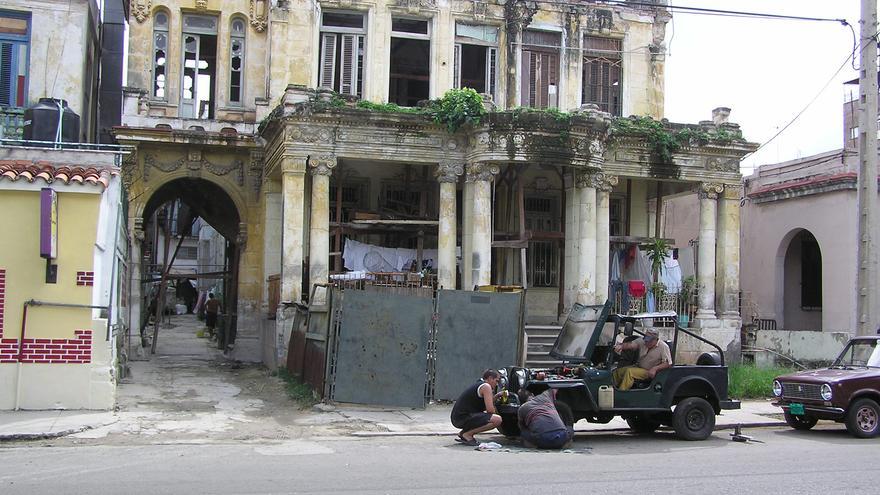
![]() 14ymedio, Juan E. Cambiaso, Buenos Aires, 25 March 2019 — It’s the fourth time I’ve been to Cuba. Against my natural inclination to go to a five-star hotel, this time I hired a private apartment in El Vedado, to be with the people. It is located on 17th Street, one block from the Museum of Decorative Arts, which was an elegant street and today is just a gutter through which spoiled memories run.
14ymedio, Juan E. Cambiaso, Buenos Aires, 25 March 2019 — It’s the fourth time I’ve been to Cuba. Against my natural inclination to go to a five-star hotel, this time I hired a private apartment in El Vedado, to be with the people. It is located on 17th Street, one block from the Museum of Decorative Arts, which was an elegant street and today is just a gutter through which spoiled memories run.
This time Havana moved me, as always, but I did not like it. Havana, Cuba in general, went from picturesque to stubborn. Struggle for the path that does not suit it and renounce others that would make it better. Cuba is masochistic.
The music and the sound that emerges among the cobblestones delighted me on the first trips. In this return I managed to separate the music from the musicians. The first delights me as always. The musicians, who emerge everywhere, are like smiling zombies that resuscitate an original past, prior to the Revolution, because there is nothing left to show. The Castros and their acolytes replaced reality with hypnotic slogans that generate vibrant attachments, however empty of substance and overflowing with stimuli for primary feelings.
The owner of the apartment does not get milk for breakfast, the restaurant does not get chicken for fettuccine Alfredo, the bar in front of the Cathedral has the same problem with beer, the international pharmacy has no alcohol, gauze or adhesive cloth to heal a wound I got when I fell, the homeowner with gastritis does not get omeprazole (Prilosec). The explanation is reiterated: “For now, we don’t have any.” And so they live, with what there is for now.
The glorious people of Cuba accept to live with pain and without glory, believing that the latter will be the consequence of living in pain. And from there comes everything else. The dream of the Jesuit alumnus who made it happen was that they believed that the suffering in this Cuban world was the guarantee that the secular paradise would finally arrive. Until victory always, victorious for now, no. Revolutionary Cuba is a victory in gestation. A pregnancy of half a century that has no childbirth in sight.
The most surprising thing is that they do not get angry atthe adversity or its causes, that they live relaxed, lazy, some working and others making like they work. Many believe they are striving to make the dream of el Comandante come true.
Nobody competes with anyone and everyone makes between 25 and 30 dollars per month. The freedom to engage in business is limited, rickety, among the ruins. Private micro-businesses, such as small restaurants and rented rooms in family homes (which are chosen because their low price justifies living with little comfort and seeing what happens), sprout like mushrooms.
The construction in Havana draws attention. But it’s only about foreign companies that build super hotels. Not hospitals, nor schools, nor homes for ordinary Cubans. The Vedado neighborhood continues in free fall and Centro Habana collapses despite a face wash for the facades along the Malecón.
Cuba is a great tide of good people who take it all because, as in the movie The Truman Show, they have been led to believe that this broken stage is true life. I did not hear anyone say that there was going to be a collective civic effort to try to change “the thing.”
A week after leaving the island, the first time, I no longer have the taste of rum, the smell of the sea, the music of the ropa vieja (shredded beef) and the fruits of the sea, which previously lasted a long time tinkling in a glass.
__________________
The 14ymedio team is committed to serious journalism that reflects the reality of deep Cuba. Thank you for joining us on this long road. We invite you to continue supporting us, but this time by becoming a member of 14ymedio. Together we can continue to transform journalism in Cuba.
